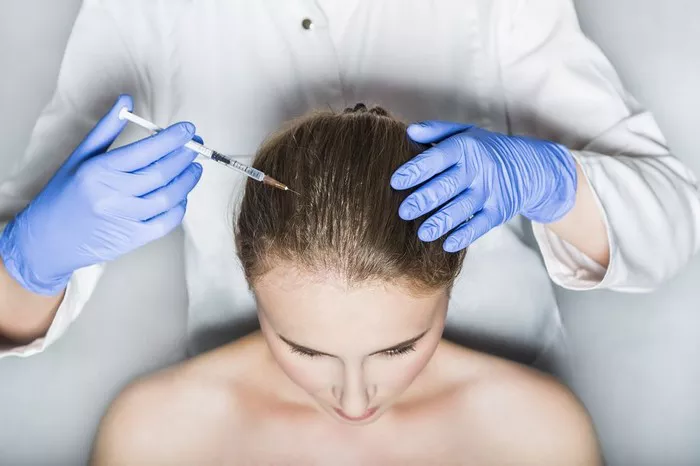Bleaching hair can be an exciting way to change your look, but it often comes with a downside: damage. The harsh chemicals in bleach can strip the hair of its natural moisture and essential proteins, leading to dryness, breakage, and an overall unhealthy appearance. Fortunately, there are effective methods to treat and revive bleach-damaged hair. This article will guide you through the best ways to restore your hair’s health, from immediate care to long-term maintenance strategies.
Understanding Bleach Damage
What Happens When You Bleach Your Hair?
Bleach works by opening the hair cuticle and removing the natural pigments, allowing for a lighter color. However, this process also removes moisture and essential nutrients, leading to:
Dryness: Without moisture, hair can become brittle and prone to breakage.
Porosity: Damaged hair cuticles may lift, causing the hair to become porous and less effective at retaining moisture.
Split Ends: Weak hair is more likely to develop split ends, making it look frizzy and unhealthy.
Signs of Bleach-Damaged Hair
If you’ve bleached your hair and notice any of the following signs, it may be damaged:
Dry, Rough Texture: Hair feels straw-like or lacks smoothness.
Excessive Breakage: Strands break easily during brushing or styling.
Frizz: Hair appears unruly and lacks definition.
Loss of Elasticity: Hair does not stretch or bounce back when pulled.
Immediate Care for Bleach-Damaged Hair
1. Avoid Further Damage
The first step in treating bleach-damaged hair is to minimize any additional harm. Follow these guidelines:
Skip Heat Styling: Avoid blow dryers, curling irons, and straighteners. Heat can exacerbate damage.
Gentle Handling: Be gentle when brushing or styling. Use a wide-tooth comb to minimize breakage.
2. Hydration is Key
Moisture is essential for restoring hair health. Focus on hydration through:
Deep Conditioning Treatments: Use a deep conditioner specifically designed for damaged hair. Look for products that contain moisturizing ingredients like:
Argan Oil: Nourishes and hydrates the hair.
Shea Butter: Provides intense moisture and improves texture.
Keratin: Helps rebuild the hair’s protein structure.
Hair Masks: Apply a hair mask once a week to provide extra nourishment. Look for masks with natural oils, proteins, and vitamins.
3. Cold Water Rinse
After washing your hair, finish with a cold water rinse. Cold water helps to close the hair cuticles, sealing in moisture and promoting shine.
4. Choose the Right Shampoo and Conditioner
Selecting the right products can make a significant difference. Look for:
Sulfate-Free Shampoos: Sulfates can strip hair of its natural oils. Opt for gentle, sulfate-free formulas.
Moisturizing Conditioners: Choose conditioners that specifically target damaged hair and provide hydration.
See Also: Ecoslay Introduces New Silver Slay Line for Silver and Graying Hair
Long-Term Care for Bleach-Damaged Hair
1. Regular Trims
To maintain healthy hair, schedule regular trims every 6-8 weeks. This will help remove split ends and prevent further damage from traveling up the hair shaft.
2. Protein Treatments
Incorporate protein treatments into your hair care routine to help rebuild the hair structure. Look for products containing hydrolyzed proteins that can penetrate the hair shaft. Use these treatments every 4-6 weeks, depending on your hair’s needs.
3. Hydration Techniques
In addition to using moisturizing products, consider these hydration techniques:
Leave-In Conditioners: Apply a leave-in conditioner after washing to maintain moisture throughout the day.
Oils and Serums: Use natural oils (like coconut or jojoba oil) to seal in moisture and add shine. Apply a small amount to the ends of your hair.
4. Protective Styles
Consider wearing protective styles, such as braids or buns, to minimize manipulation and protect your hair from environmental stressors. These styles can help reduce breakage and allow your hair to recover.
Nutritional Support for Hair Health
Your diet plays a vital role in hair health. To support recovery from bleach damage, include the following nutrients in your meals:
Protein: Essential for hair growth and repair. Include sources like chicken, fish, beans, and nuts.
Omega-3 Fatty Acids: Help to nourish the hair follicles. Found in fatty fish, flaxseeds, and walnuts.
Vitamins and Minerals: Ensure adequate intake of vitamins A, C, D, and E, as well as biotin and zinc for optimal hair health. Incorporate fruits, vegetables, and whole grains into your diet.
Professional Treatments
If your hair is severely damaged, consider seeking professional help. Hair salons offer various treatments that can significantly improve the condition of bleach-damaged hair:
1. Olaplex Treatments
Olaplex is a popular professional treatment that works to repair broken bonds in the hair caused by bleaching. This treatment can dramatically improve hair texture and strength.
2. Bond Rebuilding Treatments
Many salons offer bond rebuilding treatments that restore the internal structure of the hair. These treatments can be beneficial for those with extensive damage.
3. Keratin Treatments
Keratin treatments can help smooth the hair and reduce frizz, making it more manageable. However, be cautious with this option, as some keratin treatments contain formaldehyde.
Conclusion
Reviving bleach-damaged hair requires a comprehensive approach that includes immediate care, long-term maintenance, nutritional support, and possibly professional treatments. By implementing these strategies, you can restore your hair’s health, improve its appearance, and enjoy beautiful, vibrant locks. Remember, patience is key; healing damaged hair takes time and consistent care. With the right techniques, you can turn your bleach-damaged hair into a luscious, healthy mane once again.
You Might Be Interested In
- Should I Brush or Comb My Curly Hair? A Complete Guide
- Can Split Ends Be Healed? Understanding And Preventing Hair
- Is It Necessary to Wash Hair Daily? A Complete Guide


